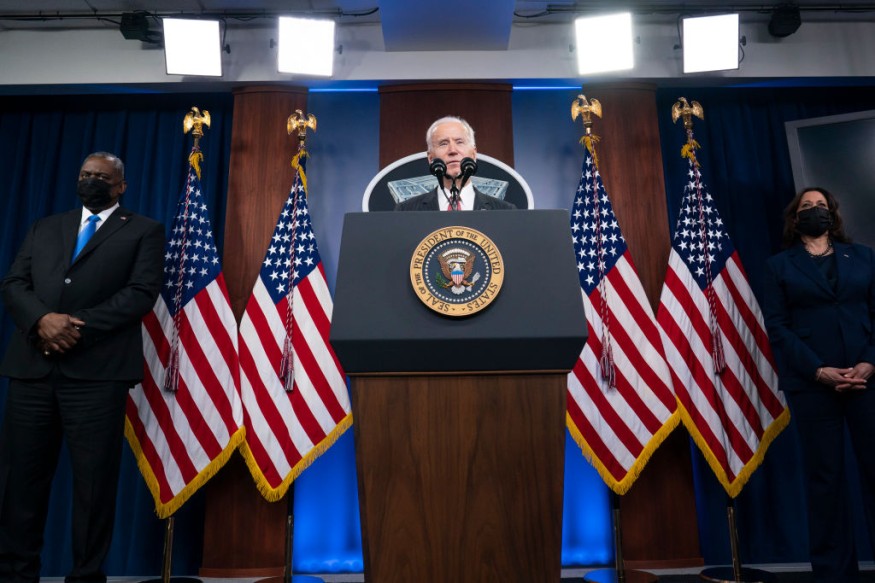U.S. to Give $4 Billion to Global COVID-19 Vaccine Program to Help Developing Countries

In response to eradicating COVID-19 worldwide, the U.S. government will give up to $4 billion to the global COVAX campaign to help developing countries with their battle against the deadly disease.
President Joe Biden is set to announce on Friday the plan to contribute a total of $4 billion to the global COVID-19 vaccine program aimed at assisting developing nations. The President would announce it during a virtual meeting of G-7 leaders about the COVID-19 pandemic.
According to NBC News, the U.S. will contribute an initial $2 billion before the end of the month to a World Health Organization-backed program called COVAX that supports access to vaccines in about 92 countries. The remaining $2 billion will be given over the next two years.
A senior administration official said the first $500 million of that pledge would be available "rather quickly" to encourage other donations from rich nations. The official noted that this is an effort by the U.S. to secure more donor commitments to the global vaccination effort, The Hill reported.
Related article : WHO Clears AstraZeneca COVID-19 Vaccine for Emergency Use
Implications of Funds to be given to the Global COVAX Campaign
Administration officials said that contributing the funds appropriated by Congress in December for foreign pandemic assistance would benefit the country.
The officials noted that it would help Americans reduce the risk of further mutations that could prolong the pandemic. They added that helping other countries would also help in lessening the transmission.
According to a The Conversation report, the mutated variants of the virus from the unvaccinated population will be able to infect even people in the vaccinated population.
The report noted that vaccines might not work against mutated variants due to changes in their genetic code. It added that a vaccine creates an immune response through antibodies designed to recognize the virus' protein structure, and this structure might be altered when it mutates.
When the transmission is taken into account, the report said it would not be realistic for countries with people already inoculated to close their borders against countries that are not vaccinated unless they shut their government to the rest of the world. It emphasized that interaction between their citizens and citizens from other countries is inevitable.
What is COVAX?
Launched in April 2020, the BBC said that COVAX or COVID-19 Vaccines Global Access Facility is led by the World Health Organization (WHO) in collaboration with the Global Vaccine Alliance and the Coalition for Epidemic Preparedness Innovations.
Poor and middle-income countries will benefit from the program. COVAX targets to deliver more than two billion doses to countries across the globe by the end of the year.
WHO noted that 64 higher-income economies have joined the COVAX facility and will be able to insure themselves against any individual vaccine candidate's failure and secure successful vaccines in a cost-effective way.
Experts fear that if rich nations hoard the COVID-19 vaccines, the coronavirus will continue to mutate and could return to threaten not just the U.S. but other countries as well. More contagious variants are already circulating globally.
Read also : Religious Leaders Announce $150 Million Plan to Vaccinate Black, Latino Churchgoers Across US
WATCH: COVAX: Ensuring Global Equitable Access to COVID-19 Vaccines From Gavi, the Vaccine Alliance
Subscribe to Latin Post!
Sign up for our free newsletter for the Latest coverage!

















